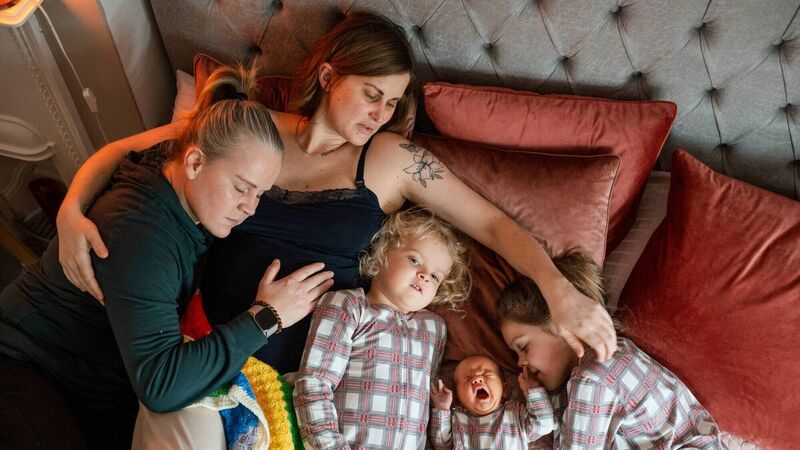‘Like so many other same-sex couples, we have just been left out in the cold’

Ranae Von Meding and her wife Audrey Rooney have three children; two daughters and one son, aged eight, five and a six-month-old — all born through reciprocal IVF. Photo: Johanna King Photography
Ranae Von Meding and her wife Audrey Rooney have three children; two daughters and one son, aged eight, five and a six-month-old — all born through reciprocal IVF.











